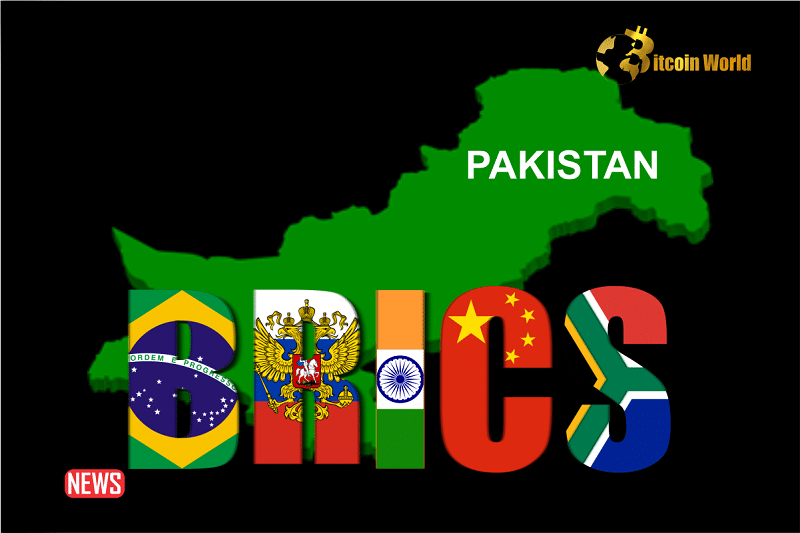Pakistan has officially thrown its hat into the ring, applying for BRICS membership with hopes of joining the influential economic alliance by 2024. But it’s not as simple as filling out a form. This move is a strategic play with potential benefits, significant challenges, and complex global implications. Let’s break down what’s happening.
Pakistan’s BRICS Bid: A Strategic Move?
- Diversifying Alliances: Pakistan aims to reduce its reliance on traditional partners and forge new economic and diplomatic ties.
- Economic Opportunities: BRICS represents a significant portion of the global economy, offering potential trade and investment opportunities.
- Geopolitical Influence: Membership could enhance Pakistan’s standing on the world stage and give it a stronger voice in global affairs.
The Roadblocks Ahead: India and Argentina
Pakistan’s path to BRICS isn’t paved with gold. Several factors could complicate its entry:
- India’s Opposition: The long-standing rivalry between India and Pakistan means India could veto Pakistan’s membership.
- Argentina’s Uncertainty: Javier Milei, Argentina’s new president, opposes BRICS and favors closer ties with the US, adding unpredictability.
Pakistan’s Diplomatic Maneuvers and Challenges
Pakistan’s diplomatic outreach has been particularly focused on Russia, seeking its assistance to fast-track the membership process.
This effort is spearheaded by Pakistan’s newly appointed Ambassador to Russia, Muhammad Khalid Jamali, who has confirmed the country’s aspirations to join BRICS under President Putin’s tenure.
Pakistan’s keenness to integrate into this group underscores its desire to diversify its international alliances and strengthen its economic and diplomatic ties on a global stage.
However, Pakistan’s path to BRICS membership is riddled with potential roadblocks, especially considering India’s influential position within the group. As a long-standing rival, India’s opposition to Pakistan’s induction could pose a significant challenge.
Meanwhile, Russia’s Deputy Foreign Minister Sergey Ryabkov has expressed an interest in expanding the “circle of BRICS friends”, while China, another BRICS powerhouse, seeks to induct “like-minded partners.”
This diplomatic jigsaw highlights the intricate balance of power and interests within BRICS, where each member’s strategic ambitions and alliances play a crucial role.
See Also: Trader Joe Compensates Users Affected By A Frontend Vulnerability
Global Implications and Regional Dynamics
The global context of Pakistan’s bid to join BRICS is further complicated by developments in Argentina.
The recent high-voltage election victory of right-wing populist Javier Milei in Argentina has introduced an element of unpredictability into the BRICS expansion narrative.
Milei, riding the wave of anti-establishment sentiment, has promised substantial economic reforms, including a rejection of BRICS membership in favor of strengthening ties with the U.S. dollar.
His strong stance against BRICS, coupled with his plans to replace Argentina’s local currency with the U.S. dollar, signals a potential shift in the global economic alliances.
Milei’s criticisms of BRICS, especially his remarks against China and Russia, and his disapproval of BRICS inducting Iran, reflect the complex geopolitical considerations that new and potential BRICS members must navigate.
This scenario underscores the evolving nature of international alliances, where economic interests, political ideologies, and historical rivalries intertwine.
Pakistan’s attempt to join BRICS marks a significant moment in its foreign policy, reflecting a strategic shift towards greater economic and diplomatic diversification.
However, the journey towards BRICS membership is far from straightforward, with regional rivalries and global political dynamics playing pivotal roles.
As BRICS continues to evolve as a key player in the global economic landscape, the decisions of countries like Pakistan and Argentina will not only shape their own futures but also have far-reaching implications for the global economic order.
The unfolding of these events will undoubtedly be a subject of keen interest and analysis in the international arena.
Will Pakistan Join BRICS? The Stakes are High
Pakistan’s BRICS application is a bold move with potential rewards but also considerable risks. The outcome depends on navigating complex geopolitical currents, securing crucial support, and overcoming significant opposition. The world watches to see if Pakistan can successfully integrate into this powerful alliance, or if it will face a setback in its global ambitions.
Disclaimer: The information provided is not trading advice, Bitcoinworld.co.in holds no liability for any investments made based on the information provided on this page. We strongly recommend independent research and/or consultation with a qualified professional before making any investment decisions.




